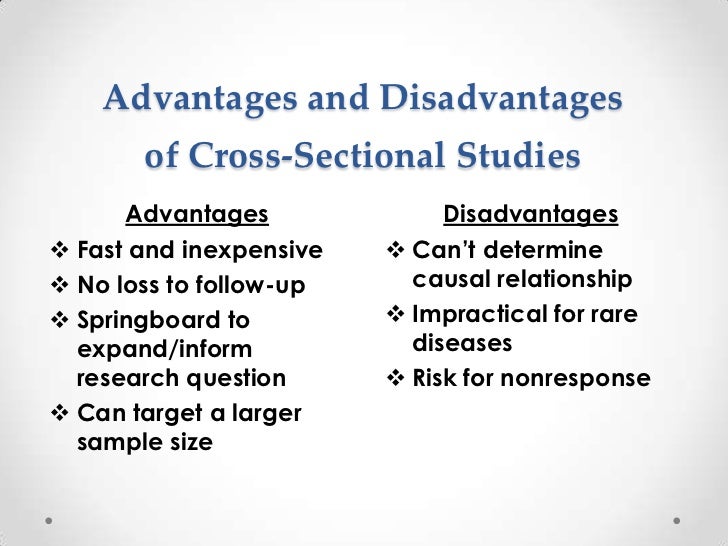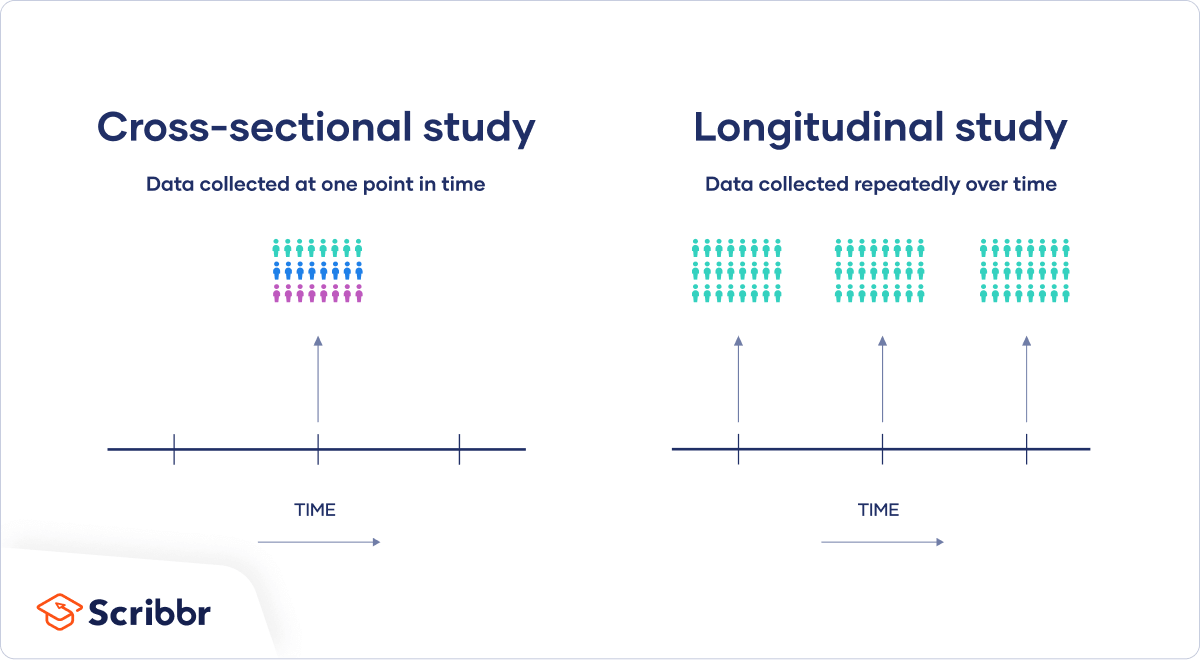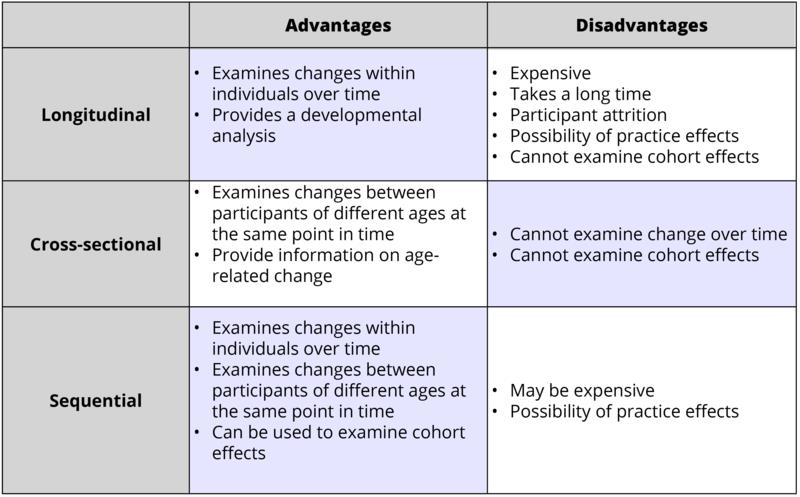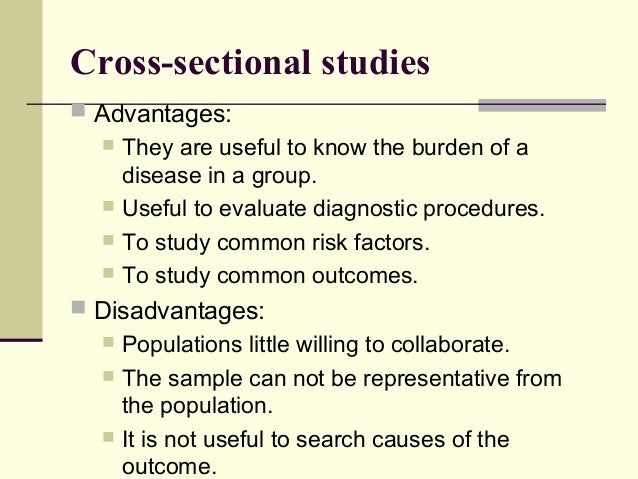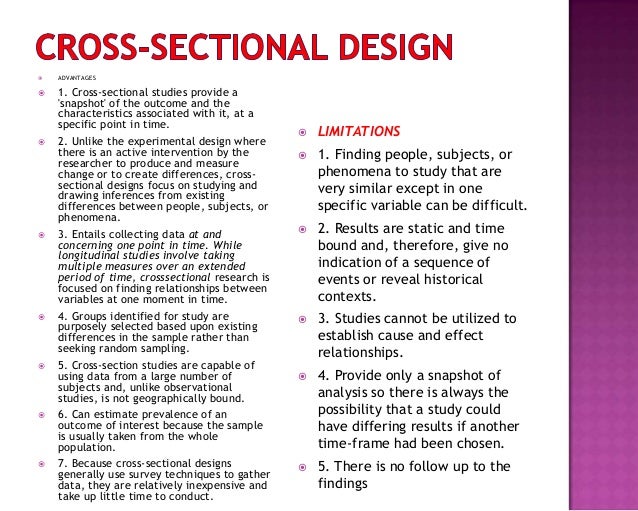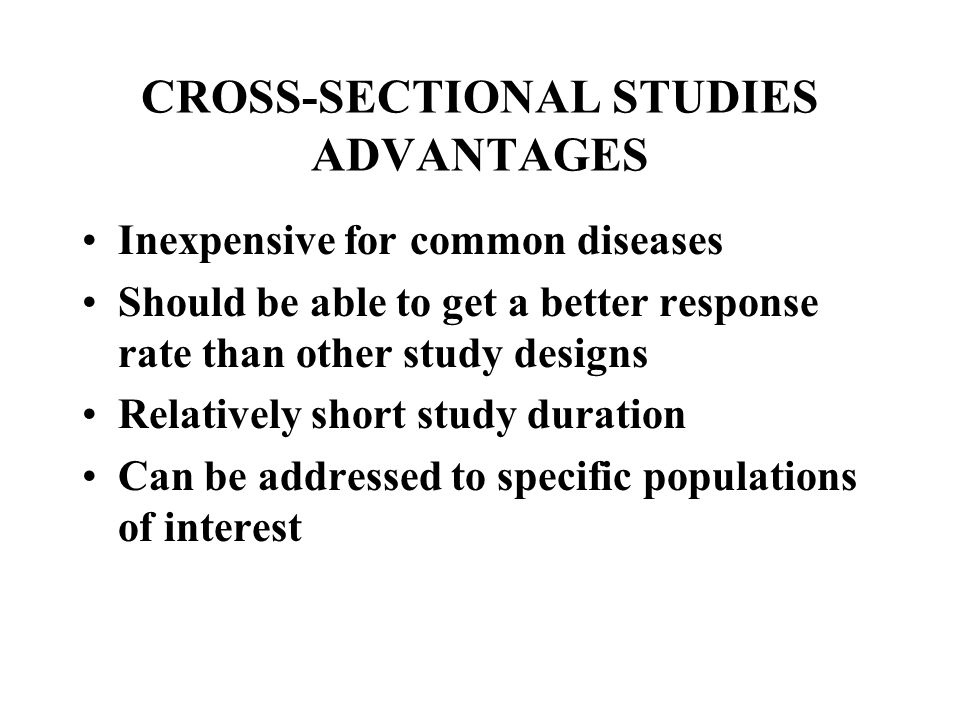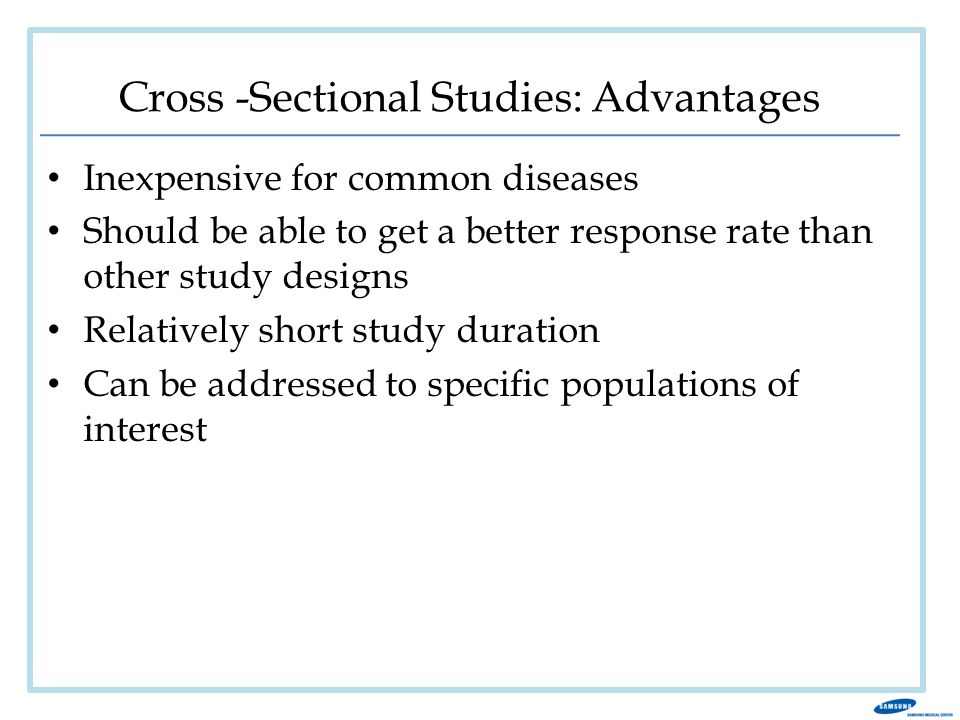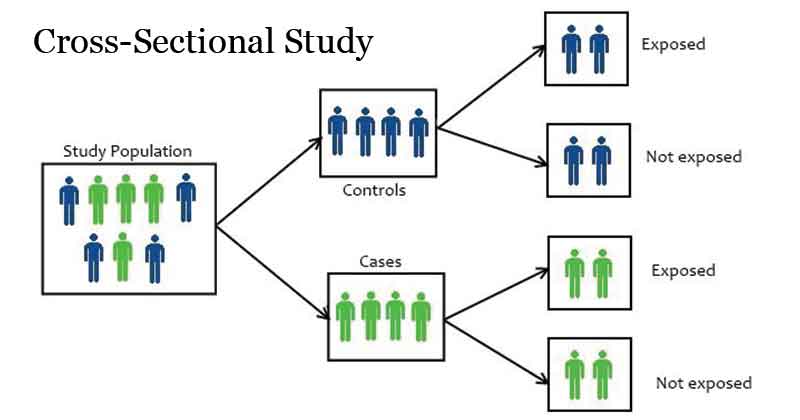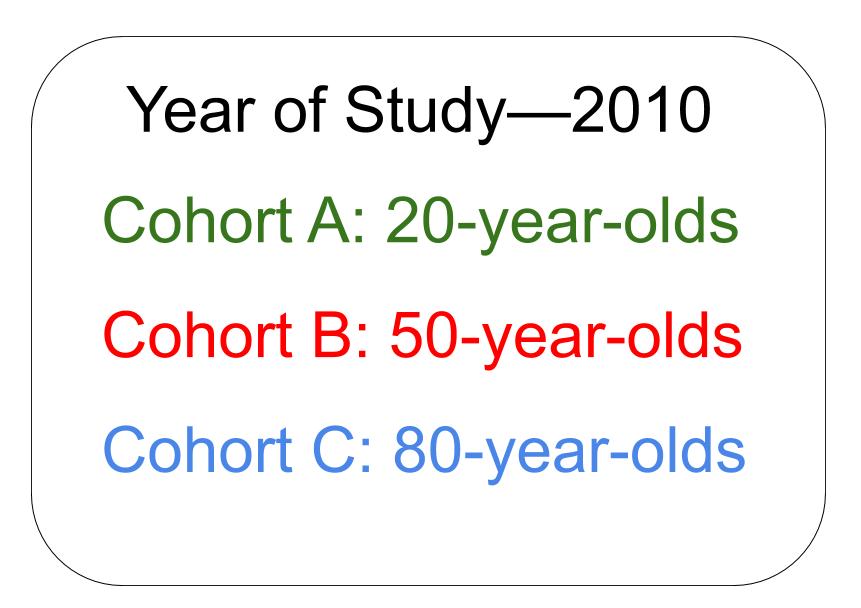Advantages Of Cross Sectional Design

The advantages and disadvantages of cross sectional studies should be carefully considered when determining which study type to pursue.
Advantages of cross sectional design. Cross sectional studies are often used in developmental psychology but this method is also used in many other areas including social science and education. Participants were women aged 18 50 years. A cross sectional study design was used to investigate the extent of chronic fatigue and the associated psychosocial exposures in a developing country.
The participants in this type of study are selected based on particular variables of interest. Data on the primary outcome and psychosocial exposures were. In this lesson you will learn about the features of this tool consider advantages and.
A cross sectional study involves looking at data from a population at one specific point in time. The primary outcome was reporting of fatigue for at least six months. Although it offers several advantages such as the ease of assessing the prevalence of diseases a cross sectional study nevertheless has limitations.
The cross sectional design is suitable to any study that uses data capturing tools such questionnaire and interview as both are considered to be simple rapid and not expensive 18. Although it benefits from a massive simultaneous collection effort of data points within a specific population there are short term incidents and recall bias issues that can affect results.
